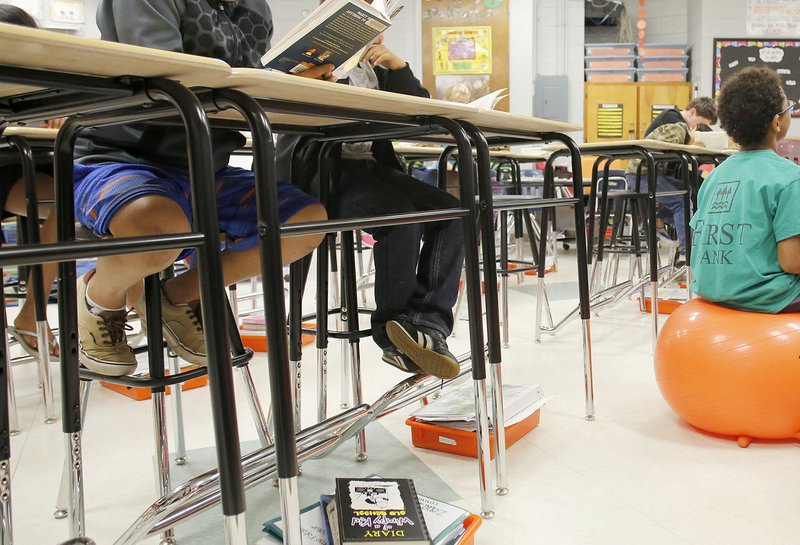A majority of Little Rock parents of school-aged students said in a survey that tutoring -- particularly in math and reading -- along with programs to help adults better aid their children would be beneficial.
To that end, the Walton Family Foundation of Bentonville, which commissioned the survey, is announcing today that it will award $200,000 to Little Rock nonprofit organizations -- on top of $300,000 already distributed -- to provide families with education-related support.
The Central Arkansas Library System and the AR Kids Read program have received $300,000 to support tutoring programs and Little Rock's broadband initiative.
An additional $200,000 will go to organizations to address issues identified by the June 22-July 13 telephone survey of 667 Little Rock families.
[DOCUMENT: Little Rock poll presentation » arkansasonline.com/99poll/]
The nonprofit programs selected for grants will be those that prioritize at least one of the following:
• Helping students improve in specific subject areas, such as reading or math.
• Offering one-on-one tutoring or student group programs.
[CORONAVIRUS: Click here for our complete coverage » arkansasonline.com/coronavirus]
• Equipping parents and guardians with tools and training to assist children with online learning.
"The strongest solutions come from those closest to the challenge," said Kathy Smith of the Walton Personal Philanthropy Group in announcing the grant program. "During these uncertain times, we must look to, learn from, and support those who know Little Rock families and communities best."
The grant application period will close Oct. 7, said Luis Gonzales, senior communications officer for the foundation. Funding decisions will be announced Oct. 19.
[DOCUMENT: Little Rock Poll Memo » arkansasonline.com/99memo/]
The Central Arkansas Library System will use $201,366 for its Count UP Tutoring Program. Students will be able to connect with tutors in real time. More information is available at: http://cals.org/tutoring.
Money includes funding hot spots to support the city's efforts to enhance digital learning.
AR Kids Read is getting $100,000 to expand virtual tutoring in Little Rock. More information is available at https://arkidsread.org/register-a-student/.
"We understand that there is a sense of urgency with schools going back [into session] and parents needing support right away," Gonzales said. "So we wanted to launch a program with a few partners that have the capacity to scale up in a very fast manner.
"At the same time, we recognize that there are likely a number of different neighborhood and community organizations that can offer additional support, but we may not be aware of them. We wanted to reserve some of the funds to ensure that we were able to identify other organizations that can provide support."
The announcement of the grant funding was preceded by the telephone survey of parents of traditional, charter and private school families by Impact Management Group.
The survey posed questions about school experiences in the spring when schools statewide were closed to on-campus instruction help to contain the spread of the coronavirus.
Survey participants were asked about access to computers and internet service.
Other questions centered on obstacles students have to learning opportunities and obstacles families are facing in general. The survey also asked about the impact their race has had on the well-being of people in their households.
Almost 68% of respondents -- more than 95% contacted on cellphones -- had at least one child in the Little Rock district, 21% had children in private schools and 10% had children in public charter schools.
Nearly 64% of respondents said they were somewhat or very concerned about their children falling behind without traditional classroom instruction.
Better than 96% of families responded that they had high speed internet or broadband at home. Of the few who did not, 52% cited affordability, 16% said it wasn't available and 24% said they didn't need it. Ninety percent of respondents said they had devices suitable for students to use for online learning.
